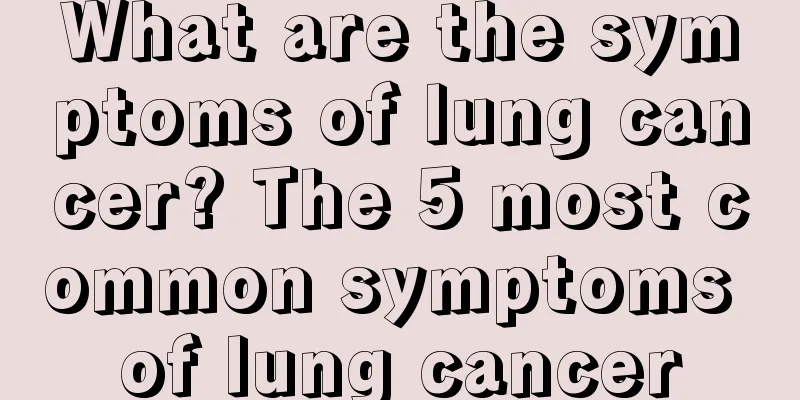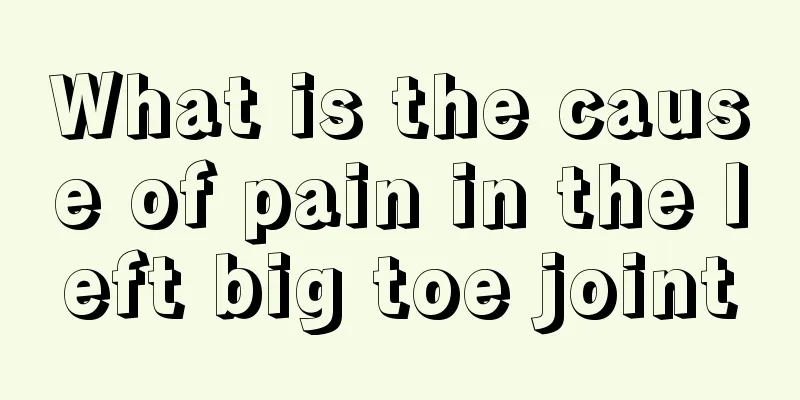Why does nasopharyngeal cancer bleed? What other symptoms does nasopharyngeal cancer have?

|
Nasopharyngeal carcinoma is a malignant tumor that is relatively serious and difficult to treat. The site of nasopharyngeal carcinoma is the nose, and nose bleeding often occurs, which makes patients feel very panic. So, why does nasopharyngeal carcinoma bleed? What other symptoms does nasopharyngeal carcinoma have? Why does nasopharyngeal carcinoma bleed? What other symptoms does nasopharyngeal carcinoma have? There is also a close relationship with bleeding in nasopharyngeal carcinoma. The older the age and the later the stage, the more likely it is to bleed after treatment. Bleeding in nasopharyngeal carcinoma is related to the morphological type of the tumor, climate, local infection, etc. Ulcers, cauliflowers, or infiltrates of nasopharyngeal tumors are prone to cause nosebleeds. In addition to local causes, there are also systemic causes, such as hypertension, arteriosclerosis, coagulation disorders, etc., which can cause and aggravate nosebleeds. What are the other symptoms of nasopharyngeal cancer? Other symptoms of nasopharyngeal cancer include: 1. Tinnitus, hearing loss, and a feeling of blockage in the ear. When nasopharyngeal carcinoma occurs in the lateral wall of the nasopharynx, the lateral fossa, or the upper lip of the Eustachian tube opening, the tumor compresses the Eustachian tube, which can cause unilateral tinnitus or hearing loss, and catarrhal otitis media. Unilateral tinnitus or hearing loss, and a feeling of blockage in the ear are one of the symptoms of early nasopharyngeal carcinoma. 2. Headache is a common early symptom of nasopharyngeal carcinoma, accounting for 68.6%. It can be the first symptom or a symptom. In the early stage, the headache is not fixed in location and is intermittent. In the late stage, it is a persistent migraine with a fixed location. The reason for this is that in early patients, it may be caused by neurovascular reflex or stimulation of the first branch of the trigeminal nerve. In late stage patients, it is often caused by tumors destroying the skull base and spreading inside the skull to affect the cranial nerves. 3. Diplopia. Due to the invasion of the abducens nerve by the tumor, double vision is often seen when looking outward. Invasion of the trochlear nerve often causes inward strabismus and diplopia, which accounts for 6.2% to 19%. It is often damaged at the same time as the trigeminal nerve. |
<<: What are the symptoms of advanced liver cancer
>>: How much does a course of chemotherapy for breast cancer cost
Recommend
Can I drink coffee during my menstrual period?
Women must pay attention to a reasonable and heal...
How to check for rectal cancer
In recent years, rectal cancer has become one of ...
How to reduce belly fat
Most of the fat of obese people is accumulated in...
The cost of treating tongue cancer with an old Chinese doctor
How much does it cost for an old Chinese doctor t...
Is scraping good in winter
Gua Sha is a traditional Chinese medicine treatme...
Life and diet considerations for patients with hamartoma
Hamartoma is not an ordinary disease. The size of...
Can patients with gastric cancer eat protein powder?
Including lean meat, eggs, dairy products such as...
What are the symptoms of mental disorders?
In modern life, people’s work pace is very fast, ...
What is the surgical treatment for lung cancer? Detailed description of surgical methods for treating lung cancer
For cancer patients, surgical treatment seems to ...
Five warning signs of arteriosclerosis symptoms
The general public, especially young people, gene...
Do I need to wash my face after applying milk?
If you use milk to apply on your face, you need t...
What are the effects and functions of the green box
Qingxiangzi is the mature seeds of many plants af...
Experts explain the more typical symptoms of prostate cancer
Among the various symptoms of prostate cancer, th...
What does sperm motility mean?
Men often have problems with insufficient sperm m...
Clinical manifestations of primary liver cancer
Primary liver cancer is insidious, with no typica...









